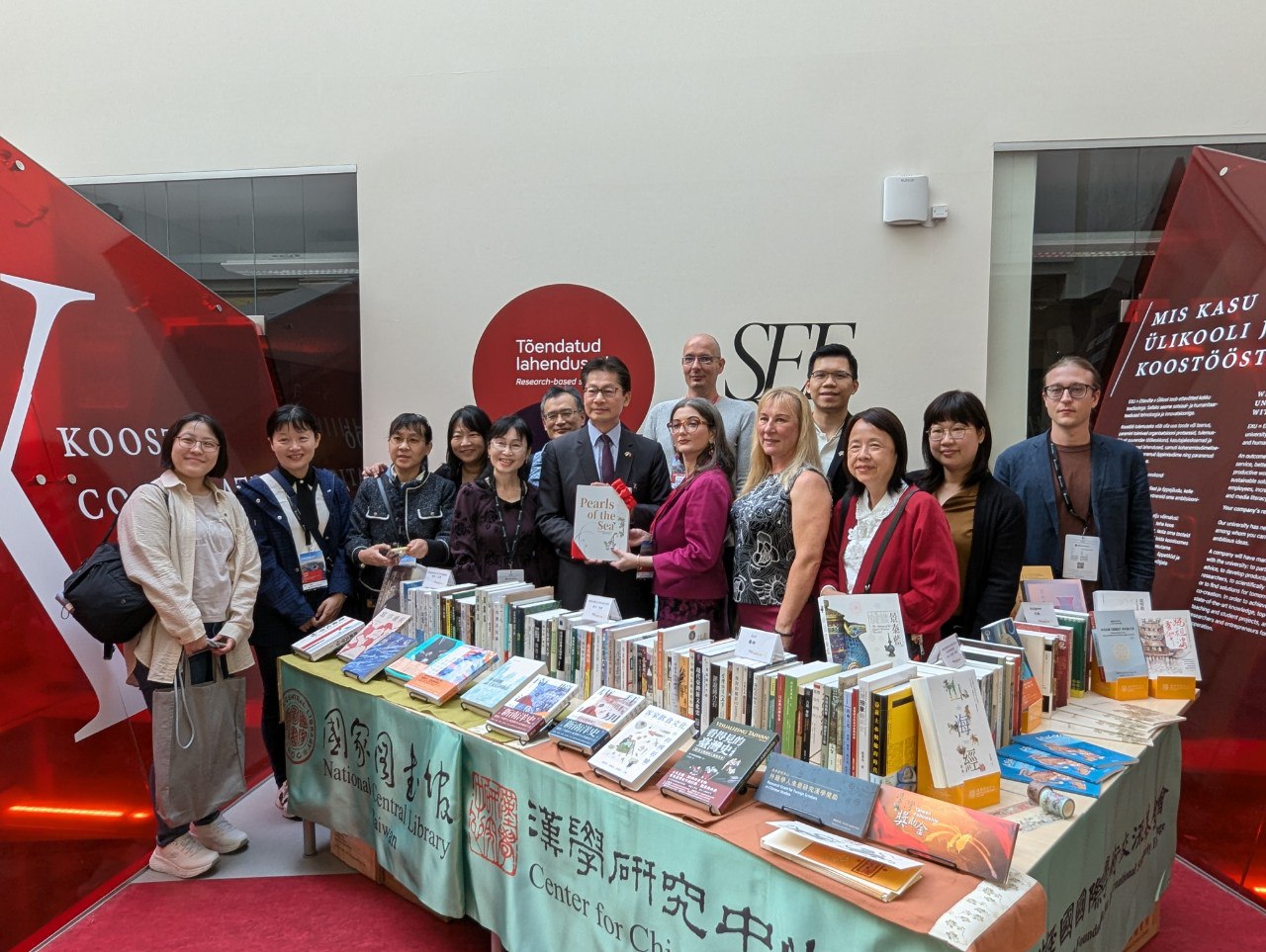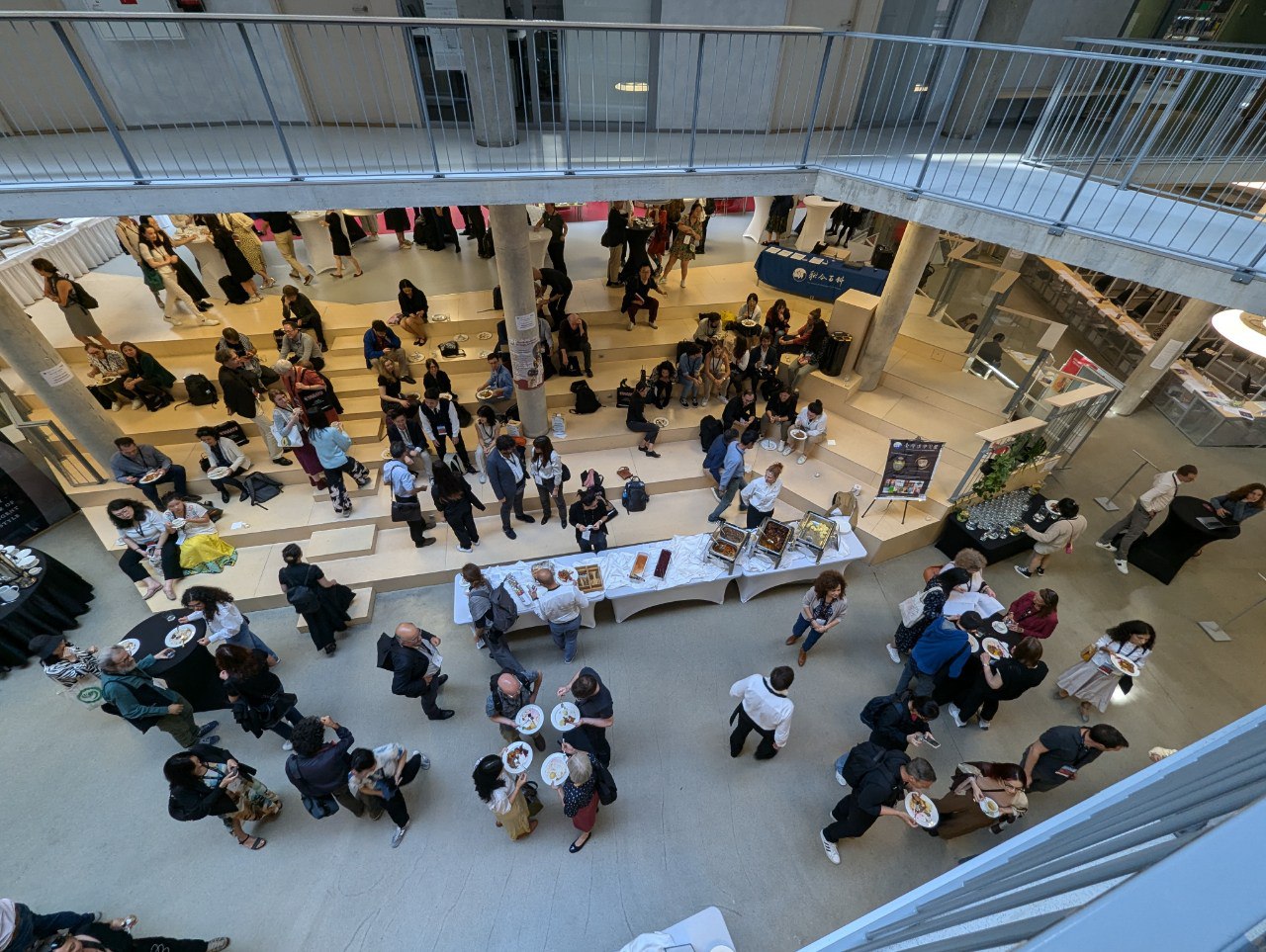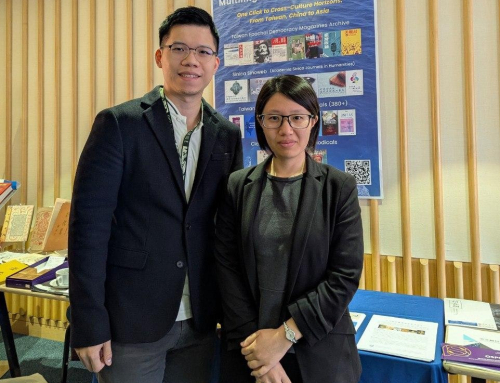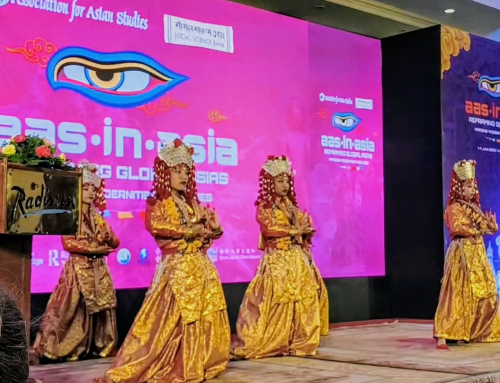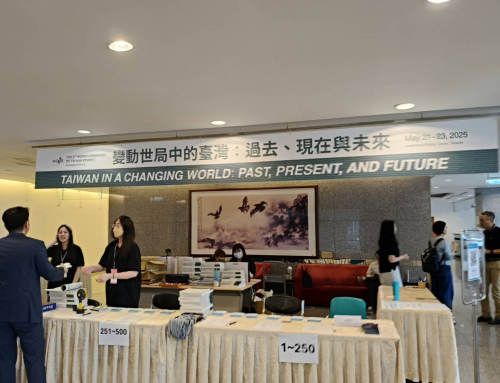From August 26 to 30, 2024, UDP participated as an exhibitor in the 25th Biennial Conference of the European Association for Chinese Studies (EACS), held at Tallinn University, a prestigious institution in the capital of Estonia, Tallinn. Established in 1975 in Paris, EACS aims to “promote and advance academic development in Chinese studies in Europe through various means and to strengthen communication and organization in the academic field.” The biennial conference is the largest academic gathering in Europe dedicated to Sinology and Chinese studies, attracting hundreds of scholars and students from various countries and regions. Participants come from Europe, mainland China, Hong Kong, Macau, Taiwan, Japan, and the United States, covering diverse research areas such as literature, arts, politics, economics, law, and history, as well as cross-disciplinary studies focusing on geography, science, and technology.
This was the second time UDP participated in the EACS Biennial Conference. During the exhibition, numerous scholars visited the UDP booth for consultations and discussions. The booth showcased the “The Crown Jewels of Sinology from Taiwan” electronic database, and UDP engaged in fruitful exchanges with scholars from various countries. With its digitization of knowledge and intelligent search technologies, UDP’s database not only covers a vast array of classic Sinology documents, cultural artifacts, and modern academic research but also offers features like character search, full-text search, cross-database search, and image-search. These features drew significant attention and praise from scholars, many of whom expressed that these tools helped them discover potential new research directions and relevant resources. Adhering to the philosophy of “From Taiwan, China to Asia: Global Multilingual Views,” UDP is committed to transcending regional and linguistic boundaries to promote global academic exchanges and collaboration. Through digitization, it preserves and shares valuable cultural heritage, fostering dialogue between East and West while providing a worldwide with essential resources for deeper academic exploration and cultural understanding.
The conference commenced with a keynote speech by Professor Rein Raud from Tallinn University’s Asian Studies Department, titled The Language of Philosophy and the Philosophy of Language. In his talk, Professor Raud presented an Eastern worldview rooted in the structure of classical Chinese language, offering a perspective distinct from the familiar “Western paradigms” in philosophy. He masterfully navigated between ancient and modern, East and West, and celebrated the beauty of cultural diversity through language. A standout moment in the lecture was when Professor Raud quoted the famous haiku by the Edo-period Japanese poet Matsuo Bashō: “The old pond—a frog jumps in, sound of water” (古池や蛙飛びこむ水の音). Through this brief haiku, he vividly illustrated the “whole-part” concept in Eastern philosophy, capturing the dynamic interplay between movement and stillness, living and non-living entities, humans and nature, and subject and object. His analysis not only delved into the fusion of nature and Zen but also placed contemporary Sinology research in a broader, more diverse academic context, inspiring profound reflection.
Another noteworthy observation from the conference was the keen interest scholars from various fields—whether in literature, politics, or history—showed in topics related to “travel.” In Sinology, “the travel of culture” is increasingly becoming a prominent subject, showcasing interdisciplinary research potential and attracting widespread academic attention. This trend suggests that the flow and transformation of culture across time and space are emerging as crucial research directions within the field of Sinology. Travel has long been a significant spiritual activity and a source of creative inspiration for Chinese literati. Poems, paintings, and essays frequently use travel as a theme to express emotions and ideals, deeply influencing the cultural history of China. Whether it was the scenic journeys of scholars or the adventures of exiled poets, travel represented not only physical movement but also mental exploration and transcendence. In modern times, Westerners entered China for exploration and trade, bringing with them Western ideas and technologies, while Chinese people began to venture abroad, becoming pioneers of modernization. This bidirectional travel signified not just a crossing of geographical boundaries but also cultural and intellectual exchanges, forming a bridge for East-West understanding and cooperation. In the contemporary era, with convenient travel and the rise of online communication, the cultural interaction between China and the West has become more frequent. Despite challenges such as censorship, the global interaction and sharing of cultures continue to advance. China’s development and the evolution of Sinology can also be seen as a journey through time and space, showcasing the ongoing progress and exchange in culture and academia.
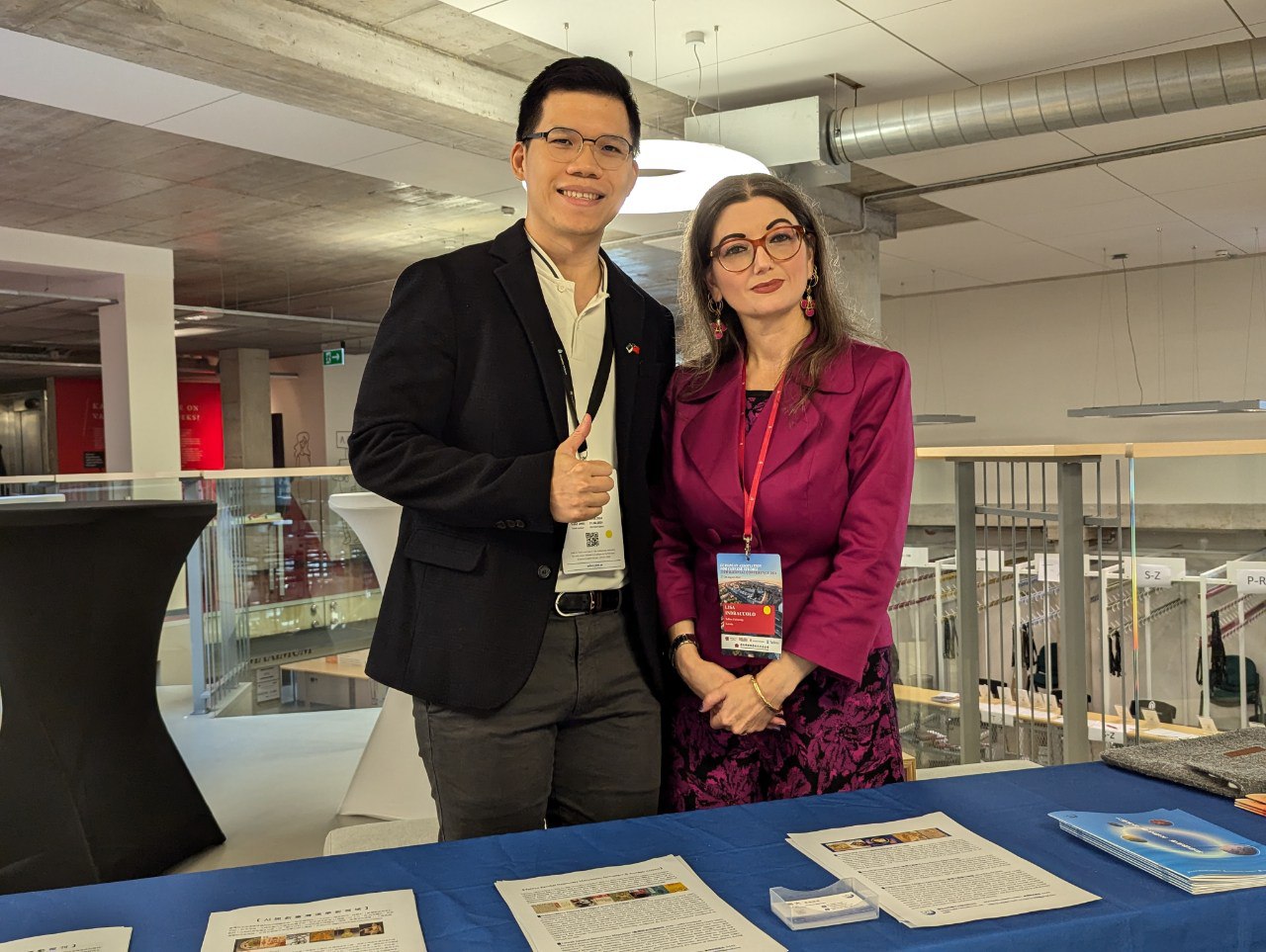
The Vice Chair of the conference and Associate Professor of Chinese Studies at Tallinn University, Lisa Indraccolo, visited the UDP booth and took a group photo.
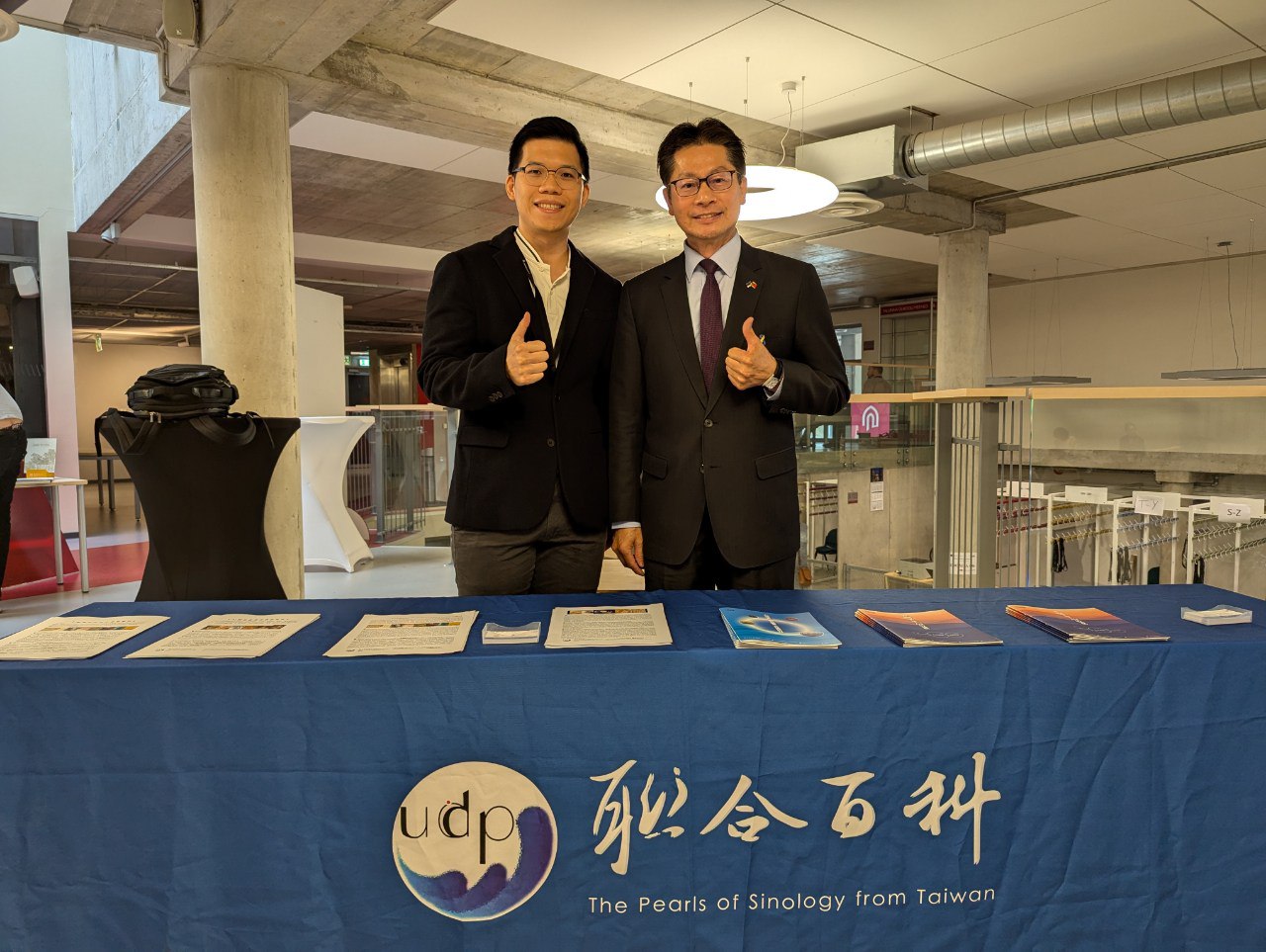
The Taiwanese Ambassador to Republic of Latvia, Li Xian-Chang, visited the UDP booth and took a group photo.
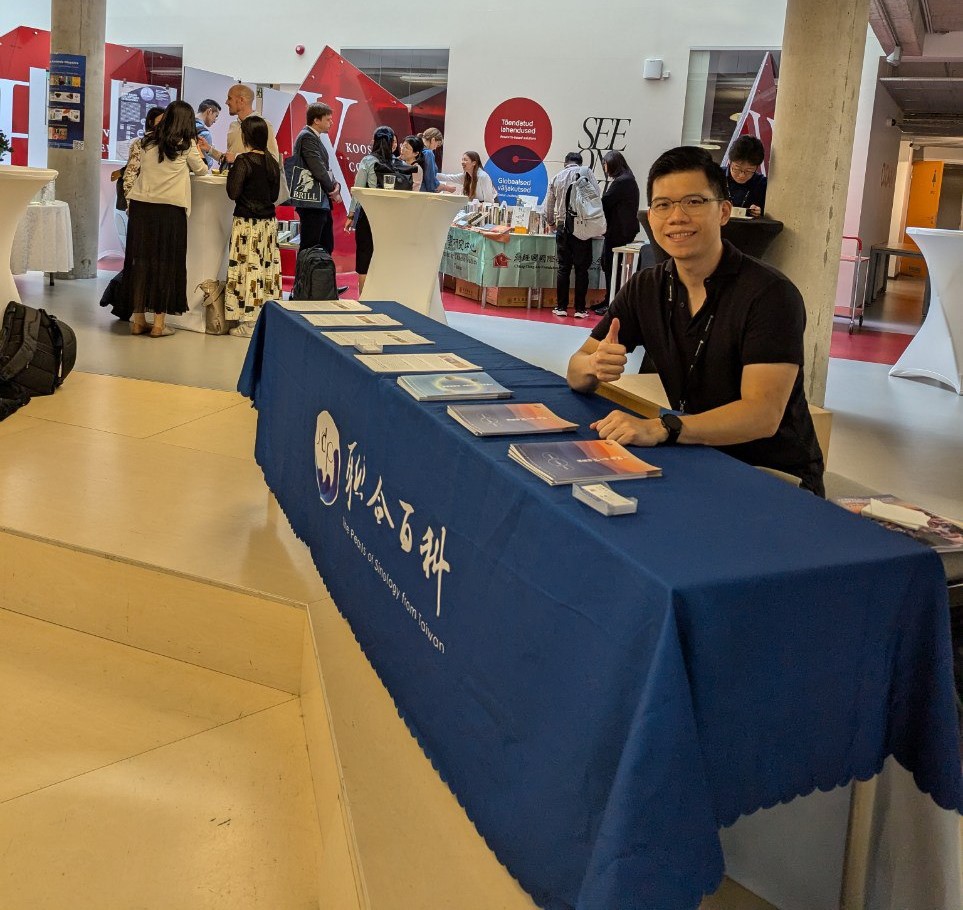
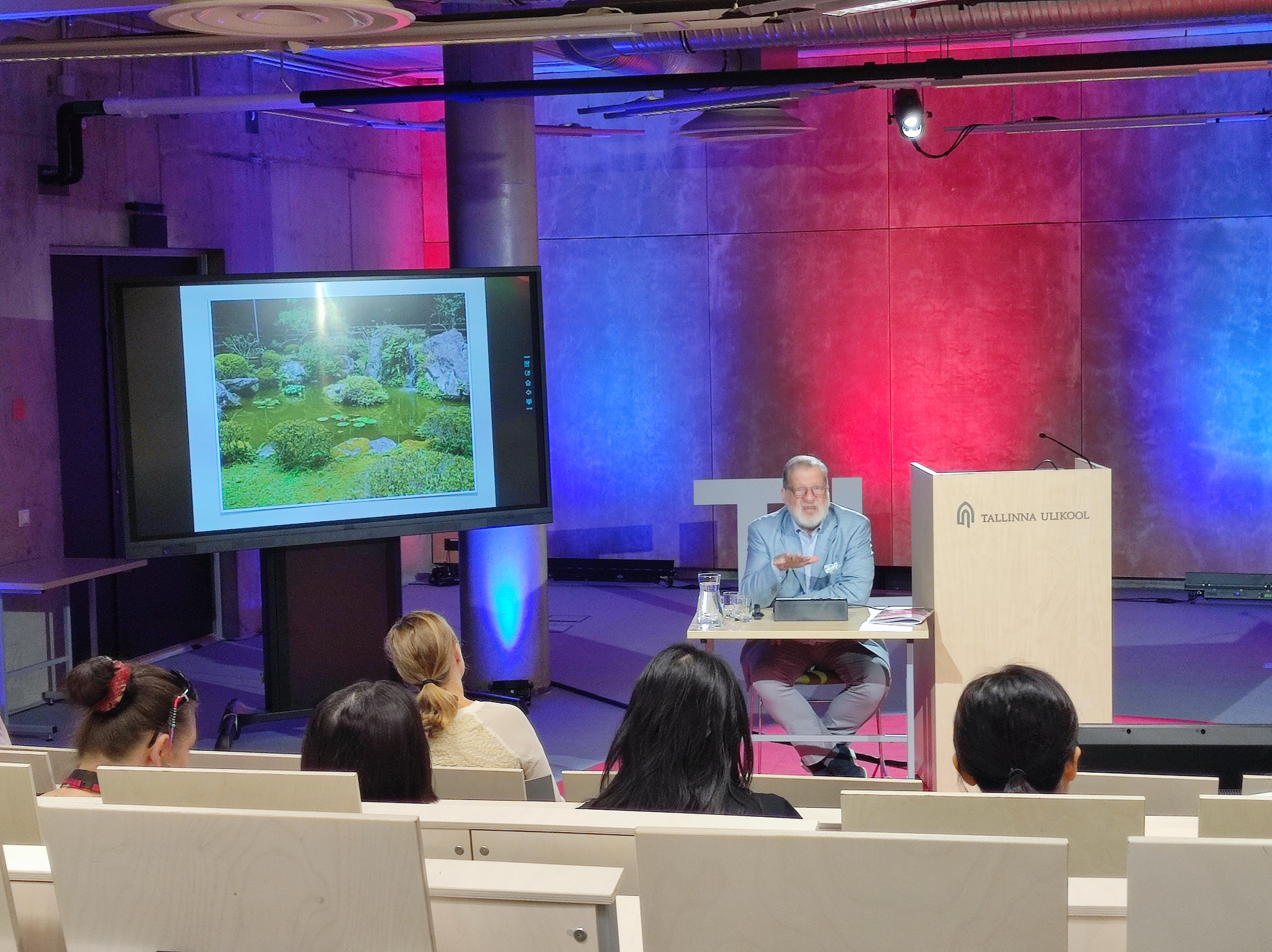
Professor Rein Raud explained the haiku “The old pond—a frog jumps in, sound of water” (古池や蛙飛びこむ水の音) by Matsuo Bashō.
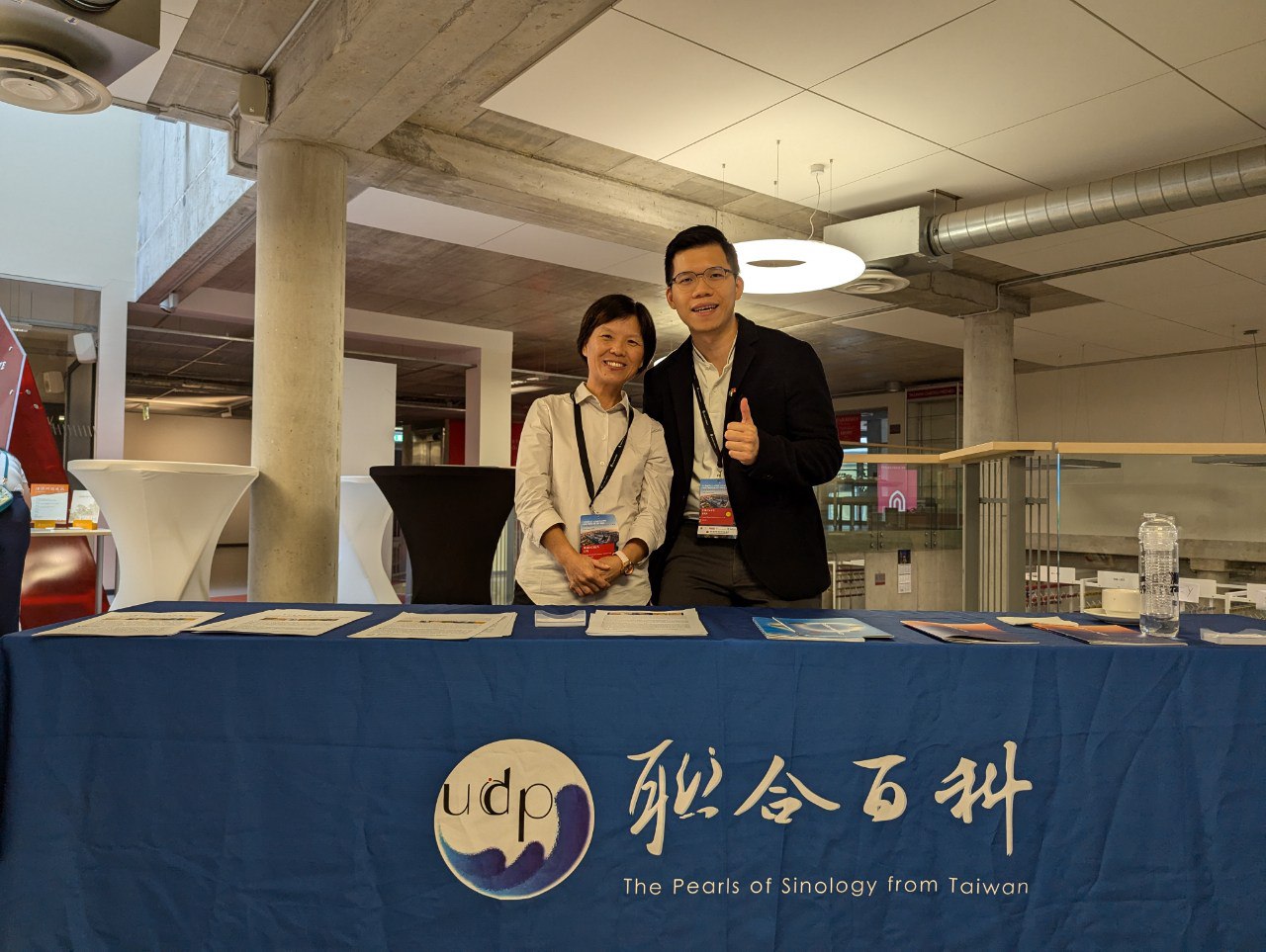
Assistant Professor Xu You-na from the Department of Chinese Language and Literature at National Chiayi University.
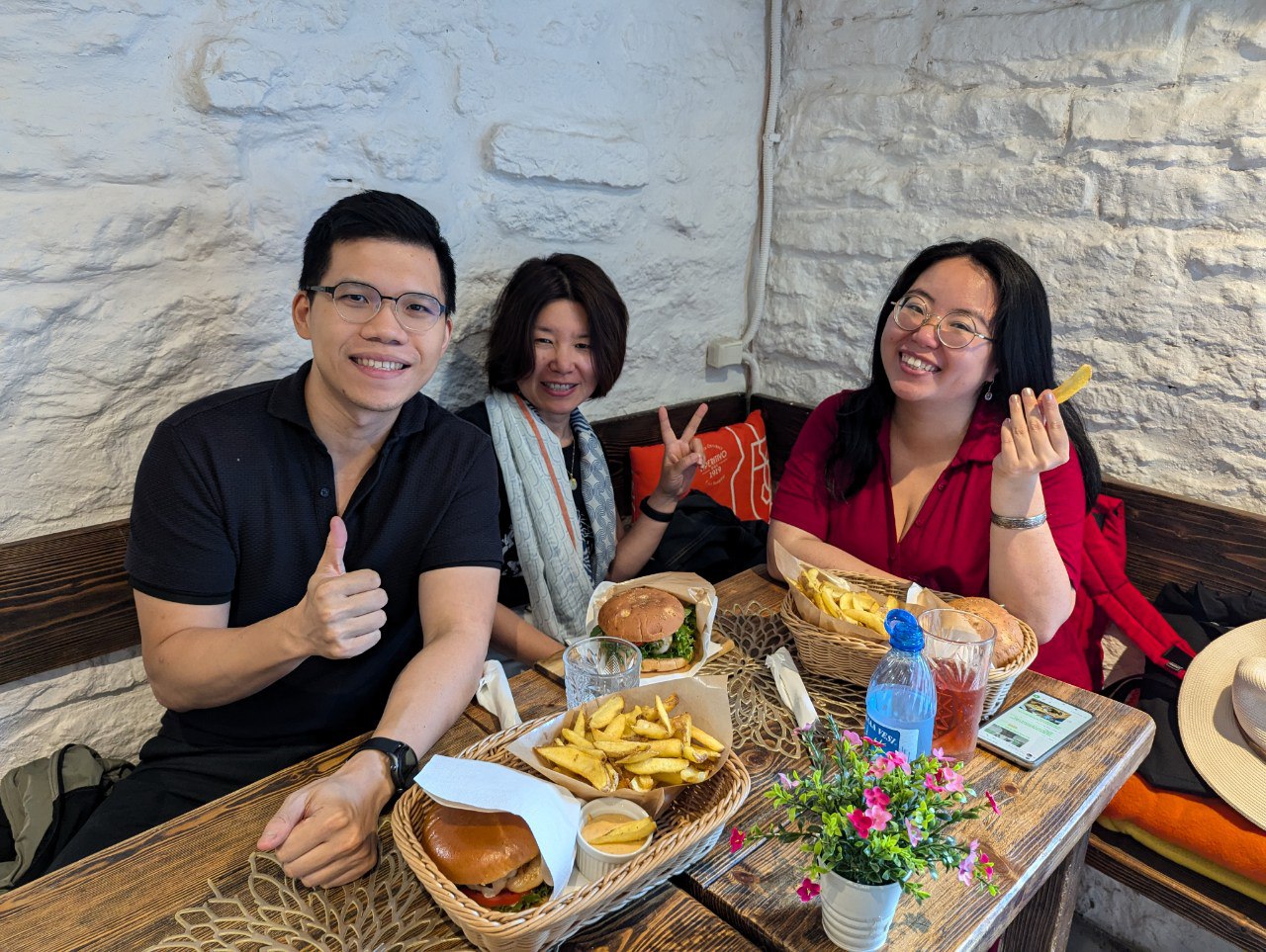
UDP’s product manager Jeff took a group photo with Zhang Lu (University of Nottingham) and Mei Mercier (IFRAE, INALCO, Paris).
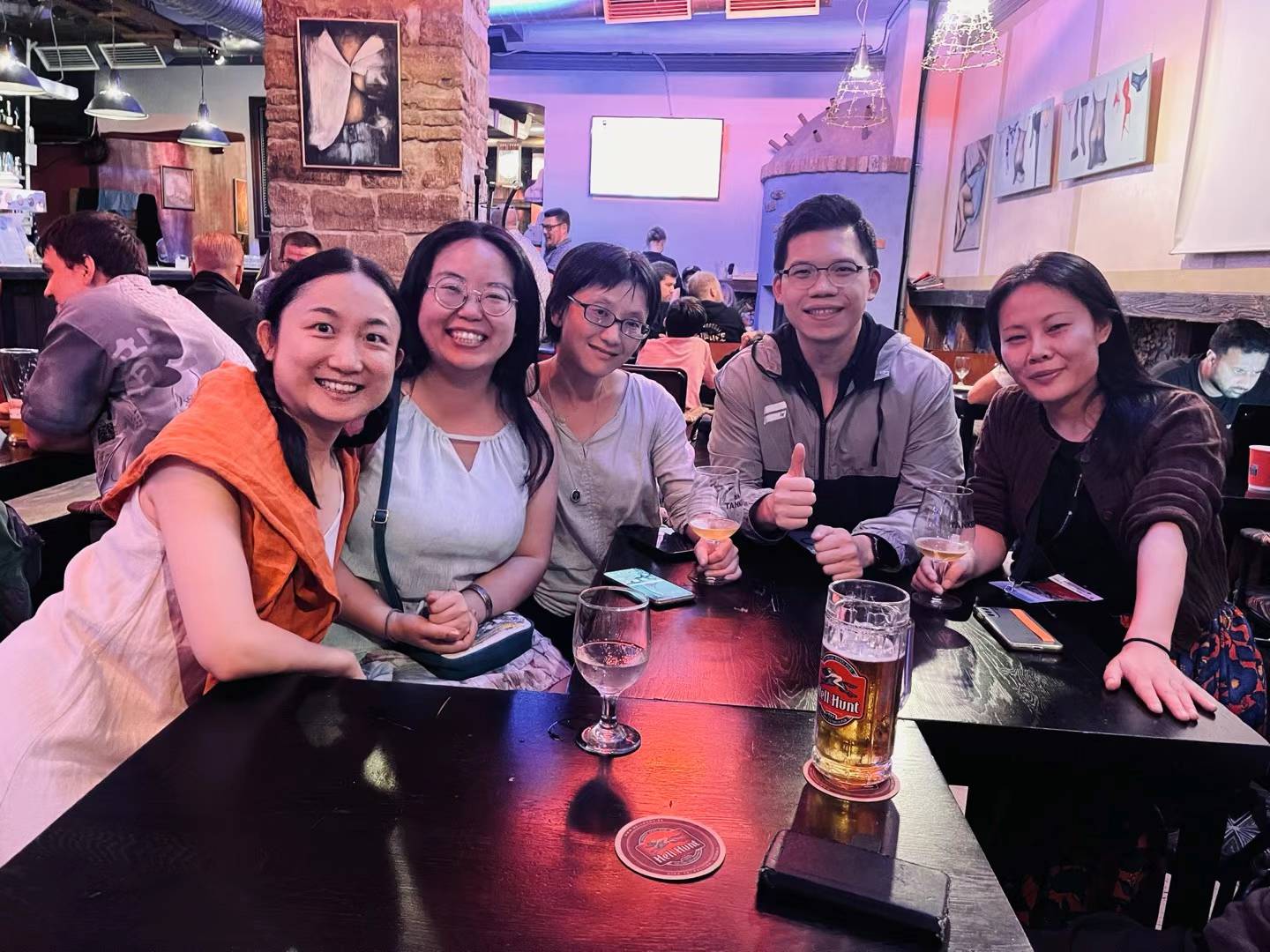
Academic Nightlife, from left to right: Sophie Peng, PhD in Central and Eastern European Studies from the University of Glasgow; Zhang Lu, PhD in Art History from the University of Nottingham; Zhou Yang, PhD in Art from Birmingham City University; Fan Zhenfu, Product Manager at United Encyclopedia; and Yuan Zhou, Postdoctoral Fellow in Literature from Palacký University.

